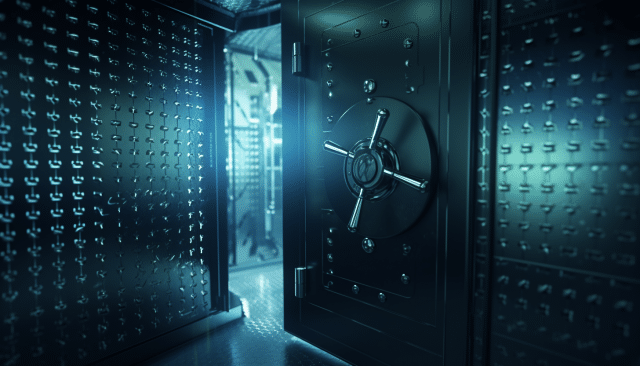Locking cyber doors: How organizations can be cyber safe in 2023

Our tech-filled lives put us at daily risk of cybercrimes, as we spend the majority of our time interacting with devices that could give hackers access to our personal data. In fact, according to DataProt, nearly 60 Percent of Americans say they have experienced cybercrime or somehow fell victim to a hacker. As every aspect of our lives becomes more connected, the opportunities for bad actors rise.
Businesses are not immune to these persistent threats. Reports show that 70 Percent of small businesses are unprepared for a cyberattack, and almost 90 Percent of professional hackers can penetrate a company within 12 hours. It is no surprise that the Federal Bureau of Investigation (FBI) has officially ranked cybercrime as one of its agency’s most important interests.
We should all be concerned about cyberattacks. Anyone who is a frequent user of the Internet may be putting themself at more risk than they are aware. While cyberattacks can affect anyone, businesses are more at risk for large-scale attacks, as cybercriminals target them for their assets and vast repository of confidential information. Some of these at-risk industries are far behind where they should be in terms of cybersecurity infrastructure -- for example, the supply chain and transportation industries are already struggling due to limited resources as a result of the pandemic.
When it comes to cybersecurity awareness, the same principle of closing and locking a door applies to your employees’ online activity. Not taking the proper precautions could result in stolen and potentially sold information. To avoid this, it is critical to institute "cyber hygiene" best practices such as turning on 2-factor or multi-factor authentication, using strong passwords that are unique for each account, and utilizing a password protection vault to contain online credentials.
A key thing to remember is to preserve evidence for law enforcement. Cyberattack victims are often tempted to delete everything after a data breach occurs, but preserving evidence for law enforcement is vital to determining the perpetrator and how they gained access. Verify which servers experienced the breach and contain them quickly to keep others protected.
Securing Critical Networks
Locking your front door is essential to safeguarding your valuables and protecting you from threats. The same precautions must be upheld for digitally evolved networks. In partnering with a cloud-based managed security service designed specifically for organizations, those locks are monitored at all times and provide managers with comprehensive remediation guidance. Advanced technology locates, deciphers, and provides alerts if it detects a cybersecurity threat such as viruses or malware. Additionally, managers gain invaluable access to thorough assessments of control systems, servers, smartphones, laptops, and any other vulnerable device connected to a network.
As we increasingly rely on interconnected digital technology, vigilant cybersecurity must become as ingrained as locking a door or putting on a seatbelt. It cannot be thought of as optional, especially in the context of safeguarding the assets of others. Cyber safety is now a mission-critical function to ensure information is protected. Bad actors strike when the opportunity to exploit unprotected networks arises, and they will capitalize on even the most minute vulnerabilities. To prevent this, the implementation of an end-to-end solution can protect the entire organization while also having a keen eye on any vulnerabilities within all applications and operating systems.
Image Credit: Wayne Williams

Robert Nawy is CEO of IPKeys Cyber Partners, a provider of industry-leading, secure OT/IT intelligence platform that addresses the complex cybersecurity, data, and critical infrastructure protection challenges faced by operators of mission-critical networks for customers in the energy, government, public safety communications, and industrial markets. The company’s suite of solutions encompasses cybersecurity, cyber compliance, and operational network monitoring for a range of dynamic OT/IT environments. The company is headquartered in New Jersey and has offices in California, Louisiana, and Texas.
